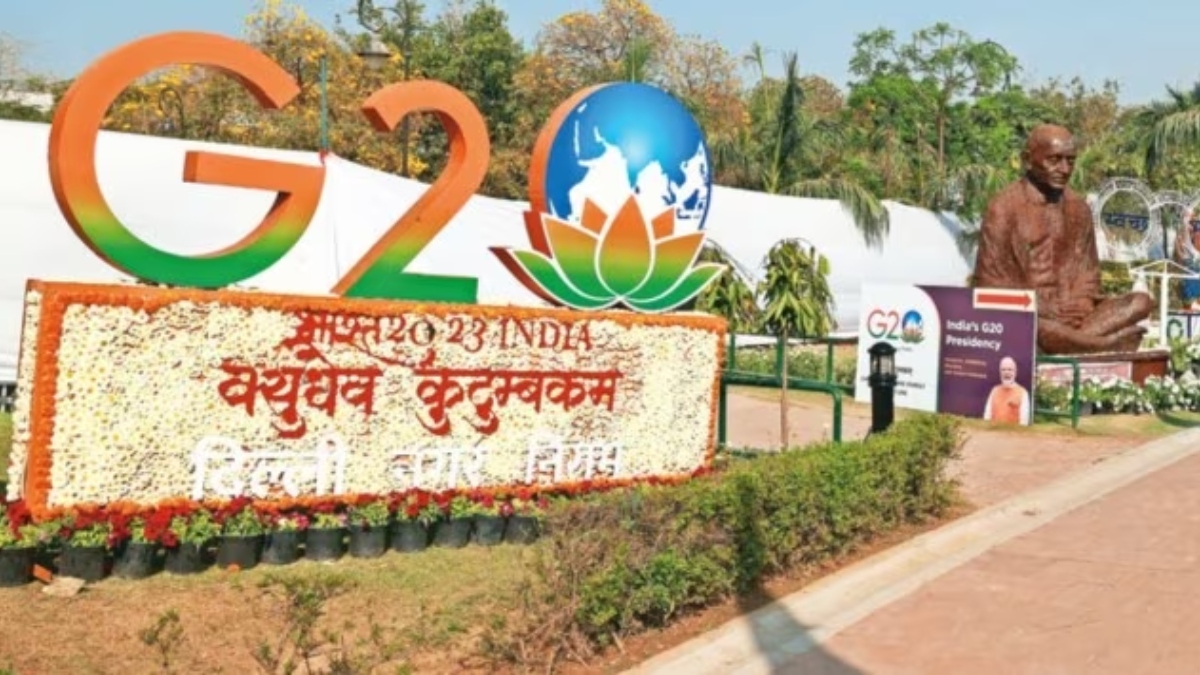By Shaifalika Panda
In Mumbai’s dynamic streets, Aisha, an aspiring entrepreneur, envisions revolutionizing the health tech sector. As a woman in technology, she confronts deep-rooted stereotypes, gender-biased hiring, and societal pressures. The challenges reflected in her story are not unique to Indian women. Thus, the G20 New Delhi Leaders’ Declaration stands as an optimistic pledge for transformative change across these nations.
The inclusive and visionary nature of the Delhi Declaration includes closing gender gaps, enhancing women’s participation in the economy, and investing in social protection and care infrastructure to reduce and redistribute women’s unpaid care work. With India’s G-20 Presidency initiating the transition to Women Led Development, the formation of a working group on Women’s Empowerment is particularly promising for continued focus on entrepreneurship, job creation in STEM and green sectors, better financial access, increased leadership opportunities, and improved health outcomes.
Navigating the Complex Landscape to Women Led Development
From underrepresented women entrepreneurs to the vast untapped potential in the unorganised sector; women are a crucial factor for economic growth. McKinsey estimates that by offering equal opportunities, it could add up to $28 trillion to the annual global GDP by 2025.
It is known that women’s entrepreneurship lags globally. In South Africa women own 21.9% of all businesses and in Saudi Arabia this statistic is at 17.7%. Despite India’s rapid economic growth, we have only 20% women-owned enterprises. To this effect, the Declaration promotes equal opportunities for women to grow and contribute a fair percentage in national per capita. It further emphasises on inclusive work opportunities, bridging the gender pay gap, and promoting access to finance through digital and microfinance platforms. A wonderful example has been India’s success of Self-Help Groups (SHGs), which demonstrates the pivotal role of grassroot initiatives in empowering rural women, fostering economic independence and shaping entrepreneurial skills at the ground level.
Similarly, the trend of gender gaps in jobs related to STEM is echoed across countries. For instance, in the United States, women comprise nearly half of the overall workforce but represent only 27% of STEM workers. India, despite having the highest global percentage of women STEM graduates at 43%, shows a mere 14% women in jobs related to the respective field. The G20 commitment to increase job creation in STEM resonates seamlessly with an urgent need for a transformative shift in attitudes and structures within these fields across majority G20 nations.
In the realm of health, a particularly alarming high maternal mortality rate has been observed in the Global South. Additionally, South Asia and Sub-Saharan Africa see a disproportionate number of adolescent girls and women struggling with underweight and anaemia—representing two-thirds and three-fifths of global cases, respectively. The Leaders’ Declaration thus recognises the complexity of these health issues and emphasizes the imperative for improved outcomes and food security for women. The proposed pathways include promoting investments in age-sensitive nutrition, healthy diets in school meal programs, and social protection systems to end malnutrition and hunger.
Another crucial element addressed in the declaration is digital public infrastructure. The global digital disparity is reflected by the fact that there are 100 digitally skilled male youth for 65 female counterparts. Furthermore, South Asian women are 26% less likely to own a mobile compared to men and India too shows only 43% women having used the internet, thus making a clear case for women’s empowerment through learning digital skills. The declaration proposes to halve the digital gender gap by 2030 by addressing key factors like accessibility, affordability, adoption, and usage of digital technologies.
Shaping a Future of Equality
As we navigate the path towards women-led development, the 3S formula emerges as a mantra for prospective growth:
Support: Government of India initiatives, like Swagatam Nandini and Nanhe Chinh celebrate the birth of a girl child and encourage their education, forming the bedrock of societal change. The European Union (EU) and the United Nations (UN) have embarked on a new, global, multi-year initiative focused on eliminating all forms of violence against women and girls (VAWG) – The Spotlight Initiative, an effort to achieve gender equity. To further these initiatives, robust support systems, both financially and socially, are vital for women.
Sensitisation: Societal transformation requires an attitudinal change to prevailing norms. Sensitising communities about discriminatory practices, fostering the impact of women empowerment, and creating awareness around the value of women across sectors is pivotal.
Systemic Change: To truly empower women, systemic alterations are essential. This includes policy interventions, diverse diet sources, nutrition counselling, and ensuring inclusive decision-making bodies.
Women as Architects of Progress
The visionary principle of this significant Declaration calls for a fundamental shift: viewing women as architects of progress rather than passive recipients. The G-20’s commitment, outlined in the New Delhi Leaders’ Declaration, therefore establishes the foundation for a transformative journey toward an inclusive, women-driven development model. It is a rallying call to ensure that no woman is left behind in the stride towards progress and equality, in line with the 2030 agenda for Sustainable Development. Marking a pivotal step in this collective pursuit, the upcoming inaugural meeting of the Working Group on Women’s Empowerment in Brazil underscores the commitment to this requisite agenda.
The author is Trustee & Founder CEO, Bansidhar & Ila Panda Foundation (BIPF); Chief of CSR (Special Initiatives), Indian Metals and Ferro Alloys (IMFA)
Views expressed are personal
